Enhancing institutional capacity of public authorities and stakeholders and efficient public administration.
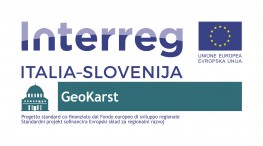
Strengthen the capacity of institutional cooperation through the promotion of public authorities and key players in the area of the Classic Karst for the design of joint solutions to common challenges.
The project has contributed to strengthen institutional cooperation and increase coordination among the two countries in land and resources management, sustainable development and competitiveness. The project has stimulated key players to create joint solutions for common challenges and increase the intensity of cooperation in the Karst thanks to the exchange of experiences and transfer of good practices. The strategic project KRAS-CARSO highlighted that the creation of the homogeneous area of the Karst can be achieved with the establishment of a cross-border geopark for the sustainable use of resources. The innovative approach of heritage valorization through inclusion, training and networking of local stake-holders and promotion of new business increased the identification of local actors with the area increasing its recognition. A cross-border management plan and joint solutions are the key for the sustainable development of the Karst in favor of target groups.
The first expected key result of the project was the Act for the establishment of the cross-border geopark of the Classic Karst which constituted the basis for the formal legal constitution of the cross-border geopark, for cross-borde management and sustainable development. The document shall have to be adopted by the Municipal and Regional Councils, therefore a cross-border agreement was needed for defined a protocol for the adoption of the act. Another important result was the adoption of 2 shared solutions aimed at ensuring greater connectivity, coherence and coordination in the management of the area: the first was the Cross-border Management Plan, the second was an innovative interpretation of the heritage for a more effective governance. The Geopark, in fact, will operate on the basis of the Cross-border Management Plan to ensure project sustainability, conservation of natural and cultural heritage, crossborder integration of local stakeholders and offers. In the project was also preparared the candidature for the inclusion in the UNESCO Geoparks Network. The second solution's outputs were: the creation of a shared brand, the delivery of guidelines for quality certification, activation of educational and tourist programs, an integrated information system, implementation of a visitors regulation, new business ideas, qualified tourist guides, geo-routes, etc. At the same time, a wide collaboration was established with the Province of Venice for geology, for exchange of experiences and practices and the transfer of practices that were implemented within the project on the Karst to the Veneto area.
Lead Partner
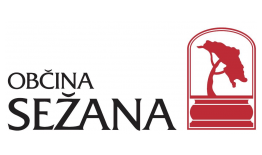
Project partner 1
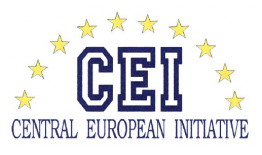
Project partner 2
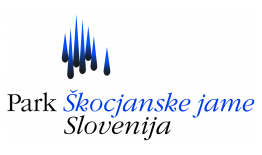
Project partner 3
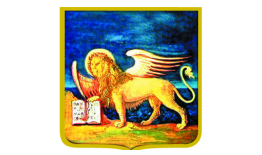
| Protokol-Protocollo.pdf ( 1 byte, published on 26 April, 2024 - 12:02 ) | |
| Priloga-Etični_kodeks.pdf ( 121 bytes, published on 29 April, 2024 - 15:21 ) |
PROJECT OBJECTIVE:
To strengthen the capacities of institutional cooperation by encouraging public bodies and key actors in the area of Classical Karst to create common solutions for common challenges.
PROJECT ACTIVITIES:
WP1 – Technical coordination and administrative and financial management of the project
Technical coordination was carried out by LP, assisted by PP2. A detailed operational program of activities was defined, their implementation was monitored, the fulfilment of the expected results was checked and the results were integrated into a whole, and the final results of the project were evaluated. Such coordination was achieved through coordination meetings. In order to ensure a uniform way of implementing the project, appropriate regulations and an action work plan were prepared. There was constant communication between the PPs via the usual means of communication.
Administrative and financial management lasted the entire duration of the project and was completed within three months after the end of the activity. The activity included interim and final reporting. The LP was also responsible for the preparation of joint reports. Each PP performed administrative activities at its headquarters. At the beginning of the activity, those responsible for the administrative activity participated in the initial coordination meeting, where they determined and coordinated the administrative procedures.
To ensure that the project activities were carried out in accordance with the intended goals and that difficulties were discovered in time, there was constant monitoring of the activities of the project partners, occasional administrative controls of the incurred costs and the achievement of the direct effects of the project. These activities were carried out by the Monitoring Commission, which consisted of representatives of the LP and PP2. In connection with the implementation of the project, an independent evaluation of the implementation of the project activities was carried out at the end of the project, which confirmed the success of the specific project objectives, the direct effects and achievements of the project, and the justification of the costs.
WP2 – Communication activities for the project
The activities of WP2 included communication activities for the project, but it also involved the dissemination of information about the establishment of a cross-border geopark. For the effective implementation of WP, a communication plan was prepared right at the beginning of the project and PR support was established. An initial press conference and introductory meeting for project and associate partners and other interested stakeholders - kick off meeting - was also organized. In the course of the project, an intermediate and final press conference was organized to inform the public about the project and to promote the achieved achievements and results. For the same reason, it also advertised on social networks (Facebook and Instagram) and in the media and carried out direct marketing. The content was prepared by all PPs, while the LP took care of translations and publications, including content for the presentation of the project on the Program's website. For the purposes of promoting the project, an informative or promotional material, namely leaflets and promotional booklets, which were distributed at existing info points in the Karst and Venice and at events related to the project. All PP contributed to the implementation of the above. The preparation of promotional folders and notebooks was planned for the purposes of promoting the project and for use at events organized as part of the project. The promotional material was designed in accordance with the rules and the overall graphic image of the Program. Within the framework of all communication activities, care was always taken to provide an appropriate presentation or promotion of the Program.
WP3.1 – Establishment of a cross-border geopark on Classical Karst
WP 3.1 consisted of 4 activities for the purpose of establishing a cross-border geopark on the Karst.
As part of the first, the geopark territory was identified, the cross-border valorization of heritage was carried out by determining geological points and two workshops were organized with local stakeholders. During the implementation of the activities, there was also an exchange of experiences and the transfer of practices for the valorization of karst in the area of Venice or Veneta.
As part of second activity, the foundations were prepared for the legal and formal establishment of a cross-border geopark. In this regard, the LP and PP2 concluded a cross-border agreement, within the framework of which a protocol was defined for the adoption of an act on the establishment of a cross-border geopark at the competent councils of the municipalities and the country.
The third activity included the preparation of an application for membership in the UNESCO global network of geoparks. Meetings of the working group of experts for the preparation of a dossier for inclusion in the UNESCO global network of geoparks were organized.
As part of the fourth activity the promotion of the cross-border geopark took place, which included the dissemination of the joint territorial mark and the coordinated graphic image and the preparation of the rules for its use, an integral information system was developed, promotional material was produced (also on the topic of geological heritage in the Veneto region) - e.g. presentation film, photo material, map-leaflet, brochure about the geopark for children and t-shirts, and also a joint a book on the geology and geodiversity of the geopark, organized events on the topic of the geopark and cross-border geopark week, presented the nascent geopark to representatives of the national forums of Slovenian and Italian geoparks and arranged for the dissemination of information about the geopark in the Province of Venice and information about the geological heritage in Venice on the Karst.
WP3.2 – Sustainable development of the Karst area
WP 3.2 consisted of 4 activities. The first was aimed at taking care of the nature, values and resources as well as the culture and heritage of the Karst. Within the framework of the latter, the evaluation and sustainable use of the geological heritage was carried out through the definition and exchange of good practices in the program area. Two meetings were organized in this connection, one at PP3 and one at PP4. The latter also contributed to the preparation of a code of ethics for visitors to the geopark and karst geological heritage in general.
Second activity contributed to promoting the development of sustainable tourism. Within the framework of the latter, a new tourist product - geotourism - was developed and innovative approaches to the interpretation of natural and cultural heritage were created by integrating the new tourist product. As part of sustainable tourism development. There was also the promotion of cycling tourism and an awareness campaign on sustainable mobility and environmental preservation.
The third activity was aimed at taking care of balanced and sustainable local development and included the review and valorisation of existing brands in Classical Karst, on the basis of which a plan for positioning the common brand of the geopark was prepared. In addition, guidelines were drawn up for the development of the Certificate of Excellence as a mark of quality for local products and produce by preparing a policy on its use.
The fourth activity represented the capitalization of the other three activities, as it included the preparation of a cross-border geopark management plan with the aim of sustainable development of the area. As part of the latter activity, meetings of representatives of thematic working groups with local stakeholders were organized. The management plan of the geopark also took into account the results of strategic documents created within the framework of the KRAS-CARSO project and missing content was prepared and added.
WP3.3 – Establishment of an innovative interpretation of the natural and cultural heritage of the Karst and the development of human resources
WP3.3 consisted of two activities. The first was aimed at establishing an innovative interpretation of the heritage for more efficient management of the area. As part of this activity, PP3 prepared the basis for the establishment of an innovative interpretation of the heritage of the Karst, whereby investment documentation for the "Gate of the Karst" facility, a communication strategy for the said facility, a logistics mobility plan or transport connections from the location of the facility throughout the Karst, and also a related strategic plan for the establishment of a public-private partnership was prepared. As part of this activity, PP4 took care of the development of a pilot project for the three-dimensional modelling of a complex karst geopoint to define the method of management, preservation and evaluation of such geopoints. In addition, PP4 also established an interpretation trail and published a pilot geopoint publication. LP and PP2 carried out two pilot cases of cleaning, interpretation and evaluation of two selected geological points on the Karst area.
As part of second activity, a knowledge platform was established and employment was promoted. Educational programs and materials were also prepared. A cross-border educational workshop was organized for interested local stakeholders, especially SMEs, with the aim of developing new projects or business ideas, which indirectly encouraged employment. With the aim of promoting employment also a cross-border training workshop for natural history/tourist guides was organized and a manual for the appropriate interpretation of the geological heritage was prepared for them. With the aim of strengthening knowledge and exchanging experiences, the LP organized a tour of the good practice of geopark operation, namely in the cross-border (Slovenia-Austria) geopark Karavanke-Karawanken.